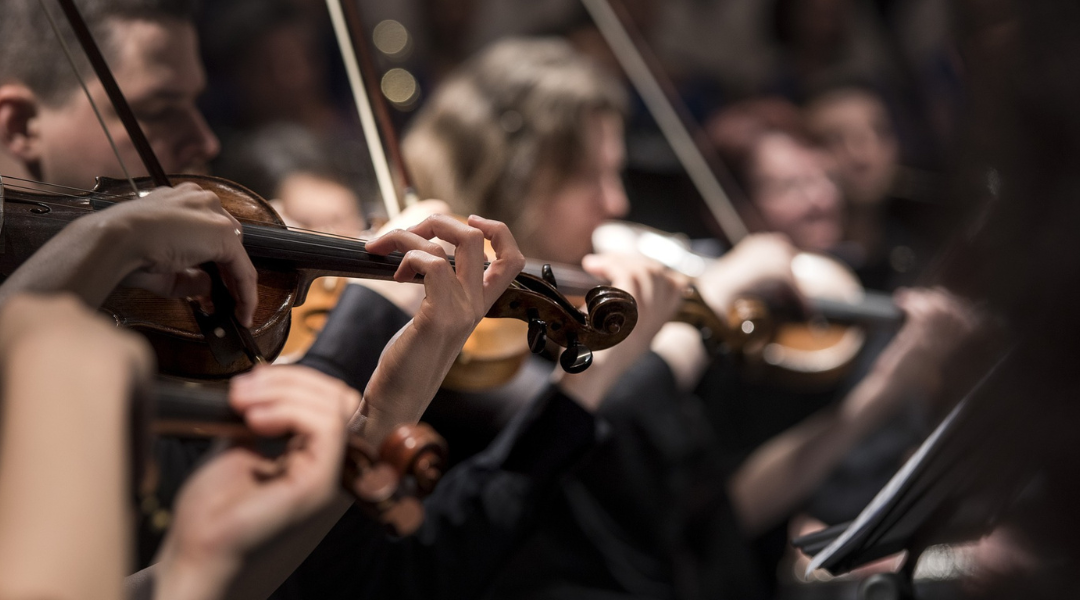Meeting the audiological needs of musicians requires specific knowledge and skills and a creative approach. Through this blog post, we’ll explore a creative approach to assessing and fitting musicians; the essential aspects of assessing the hearing of musicians, prescribing their hearing aids and assisting with their hearing protection and on-stage monitoring.
As a successful recording artist and performer, and living with one-sided sensori-neural hearing loss, tinnitus and hyperacusis our tutor Sarah Riches has first-hand knowledge of the unique intricacies of a musicians’ ear health concerns and the challenges of their working environment. Sarah has recently developed a course on how to assess and fit hearing aids to musicians. In March she delivered a taster of this to delegates at the 2024 ISHAA conference which received fantastic feedback.
Psychological impact
To embark on their care, it’s crucial to first empathise with the specific psychological impact that hearing loss, tinnitus, and hyperacusis can have on musicians. Recognising the emotional toll these conditions can take is pivotal in establishing a supportive and understanding relationship with musical clients. From this empathetic foundation, let’s delve into the technical aspects.
Auditory challenges and demands
Analysing the acoustic properties of music versus speech is fundamental in comprehending the auditory challenges musicians face. Understanding how different frequencies and dynamics interact within various musical compositions and genres enables audiologists to tailor interventions accordingly. Equally, recognising the differences between players experiences by comparing and contrasting various musical instruments and how they are heard, played, and positioned within a band or orchestra is essential.
Through this comparative analysis, audiologists gain insights into the specific auditory demands posed by different instruments and performance environments, facilitating targeted assessments and interventions. Furthermore, discussing test results in relation to both music and speech allows for a comprehensive understanding of a musician’s auditory profile.
Adopting test methods to suit the needs of musicians may require a transition from conventional protocols. Audiologists must explore alternative test options to accurately assess hearing loss in this demographic. This adaptability ensures that assessments are comprehensive and tailored to the unique auditory demands of musicians.
Hearing aids
Navigating the intricacies of hearing aid adjustments and settings for musicians requires a nuanced approach. These are not standard fittings. Audiologists must fine-tune solutions to address the specific challenges musicians encounter. Recognising when to refer clients for alternative hearing aid or device options demonstrates a commitment to optimal outcomes for clients in this specialised field.
Recognising the importance of successful integration of audio equipment/PA systems and hearing preservation methods in a musical setting is paramount. Audiologists must critically evaluate the efficacy of existing on-stage monitoring and hearing preservation solutions and explore innovative approaches to safeguarding musicians’ hearing health.
Ear care management
Reflecting on areas of privacy, consent, documentation, and ongoing ear care management rounds off the comprehensive approach audiologists must adopt when working with musicians. Transitioning from clinical interactions to holistic care, audiologists play a pivotal role in ensuring that musicians receive the support and guidance they need to thrive both on and off the stage.
Conclusion
A creative approach to assessing and fitting musicians involves assessing musicians with hearing loss, prescribing their hearing aids and assisting with their hearing protection and on-stage monitoring requires a multifaceted approach that encompasses technical expertise, empathetic understanding, and a commitment to ongoing care. By honing these skills and adopting a tailored approach, audiologists can make a profound impact on the lives of musicians, empowering them to pursue their passion while safeguarding their hearing health for years to come.
If you want to know more please book to join us at the Assessing & Fitting Musicians Course.
